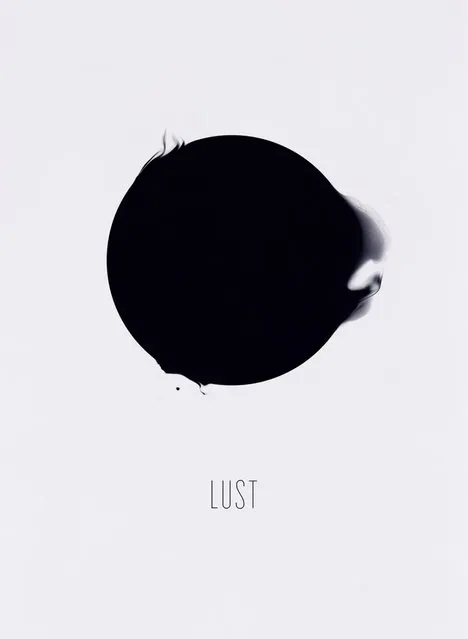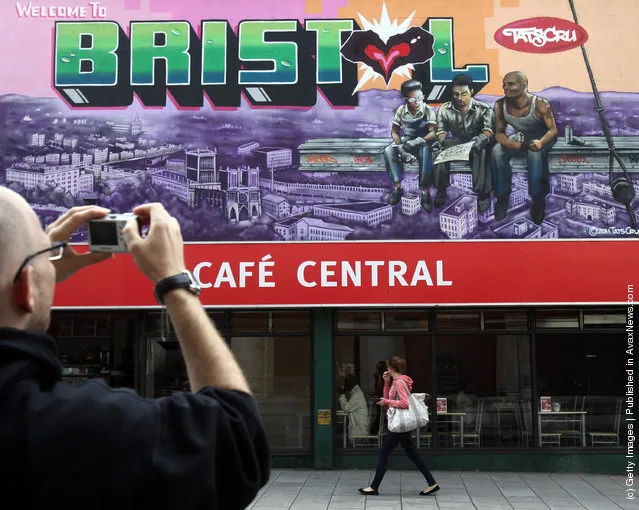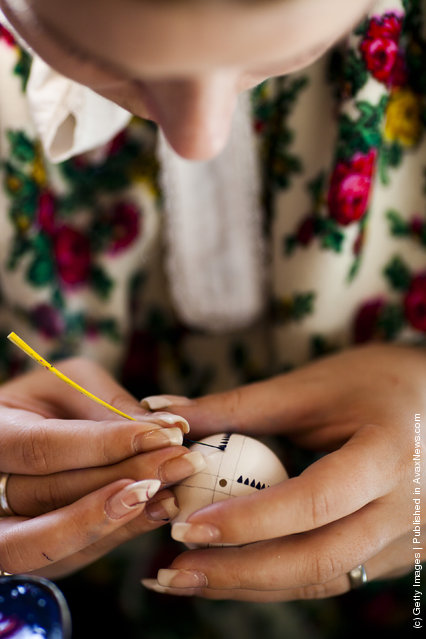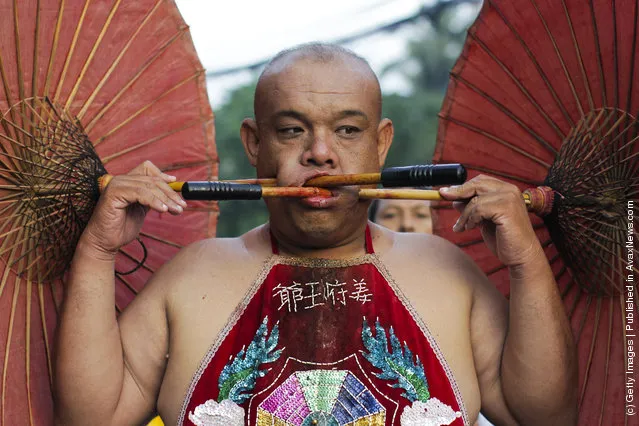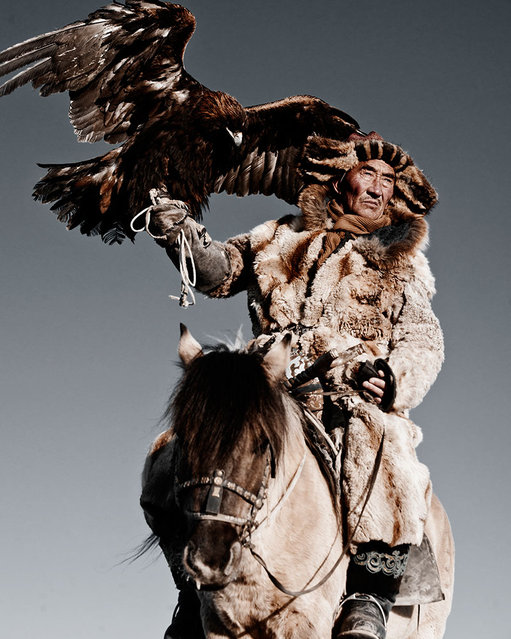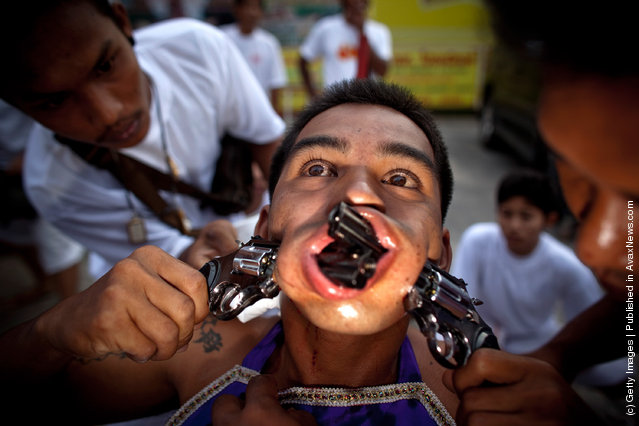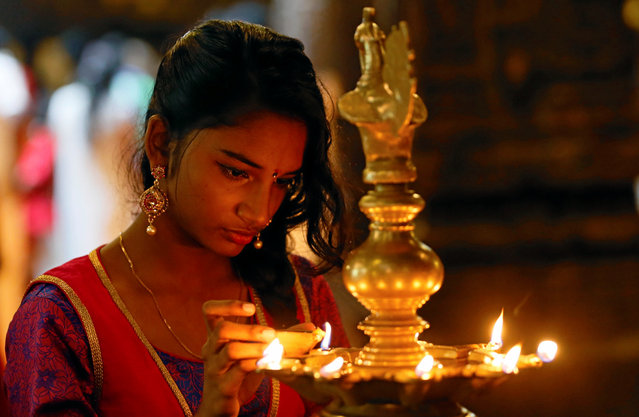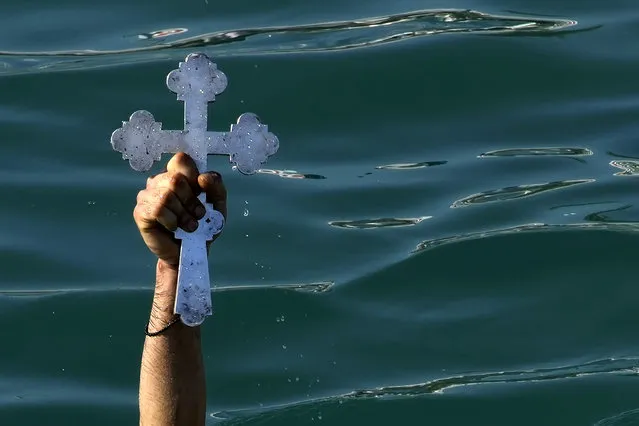
A pilgrim holds up the cross after it was thrown by an Orthodox priest into the water, during an epiphany ceremony to bless the sea, on the southeast resort of Ayia Napa, Cyprus, Friday, January 6, 2023. By tradition, a crucifix is cast into the waters of a lake or river, and it is believed that the person who retrieves it will be freed from evil spirits and will be healthy through the year. (Photo by Petros Karadjias/AP Photo)
06 Jan 2023 22:31:00,post received
0 comments

